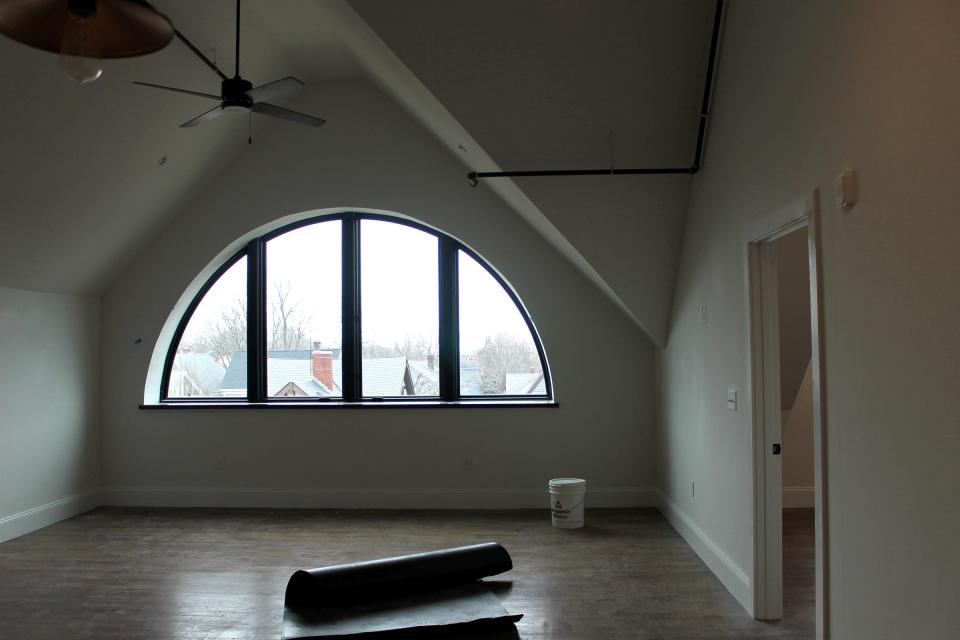How can Newport add housing units? Residents offer suggestions on where they should go
Well over half of Newporters agree that the city should change its zoning laws to allow for more housing and many agree rents are too high, according to a recent survey published by the Department of Planning and Economic Development.
Planning and Economic Development Director Patricia Reynolds also gave an overview of the department’s efforts to bolster the city’s housing stock at the council’s regular meeting on Wednesday.
“We were really encouraged by the level of response and the heartfelt comments that people made,” Reynolds said about the survey. “Generally, there were no things in there that were surprising, we’re all pretty aware of the seriousness of some of our housing issues.”
In the past two decades, the city has added just 24 net housing units to its available stock. Additionally, Reynolds told the council that the Newport County and Bristol County region is estimated to need about 9,000 more housing units over the next 10 years in order to meet demand.

However, Reynolds said the focus the city and department have put into housing solutions in the past two years has helped, as 280 dwelling units are currently in different stages of the approval and development process.
The survey was just the first phase of a study the city has commissioned that will evaluate and provide potential solutions to the issues surrounding the city’s year-round housing stock. Consultant firm Libra Planners, led by former Newport Planning Board chair Kim Salerno, is one of 11 firms approved by the state for its Municipal Technical Assistance Program, a RI Housing program established last summer to help Rhode Island municipalities address the state’s low availability of housing.
Libra Planners, alongside the city’s Department of Planning and Economic Development, conducted a 30-day survey and held one in-person meeting in February to receive feedback from the community on what types of housing is needed in the city and where it could be placed, among other housing-related topics. 470 people responded to the survey, 83% of which were full-time Newport residents.
Of those surveyed, 65% stated that the city’s zoning rules should be changed to allow more housing. The housing types most respondents prioritized as important for Newport in the survey were middle-income houses, middle-income rentals, low-income houses and housing for people with disabilities. Additionally, respondents were more likely to agree with the phrases ‘Rents are too high in Newport’ and ‘There should be more restrictions on short-term rentals in Newport,’ than other possible responses.
The most common neighborhood respondents selected as being able to accommodate new housing the best was the North End’s residential area (13.7%) followed by the North End’s commercial district (9.4%), Broadway (8.7%) and the Fifth Ward (8%).
When the study concludes, it will be accompanied by a proposed amendment to the city’s Comprehensive Plan, the document that outlines the city’s guidelines and goals for development.
The housing study is expected to take until October, with public hearings taking place this spring and this fall.
Reynolds said they have a number for how many housing units the city itself would need to add in order to meet demand, but said she would rather wait until the workshop covering the results of the study to contextualize the number.
In addition to the housing survey, Reynolds gave an overview of the department’s efforts to address housing concerns, especially as they relate to short-term rentals, which the city has cited as a contributing factor to the city’s lack of available year-round housing. The city has hired a short-term rental supervisor and secured a new monitoring system to make it easier to find short-term rentals that are out of compliance with city ordinances.
The department is also amending its zoning ordinances to comply with state legislation. It’s monitoring a bill that would make it easier for homeowners to add Accessory Dwelling Units on their property and has drafted an ordinance to amend the city’s code if the legislation passes. While Reynolds said ADUs are proven effective at increasing housing, Councilor David Carlin pushed back at the meeting with concerns that ADUs could be used to skirt the city’s short-term rental regulations. He also argued that he and other residents of the Third Ward disapprove of increased density coming to their neighborhoods.
This article originally appeared on Newport Daily News: Newport housing survey looks at challenges of increasing units

